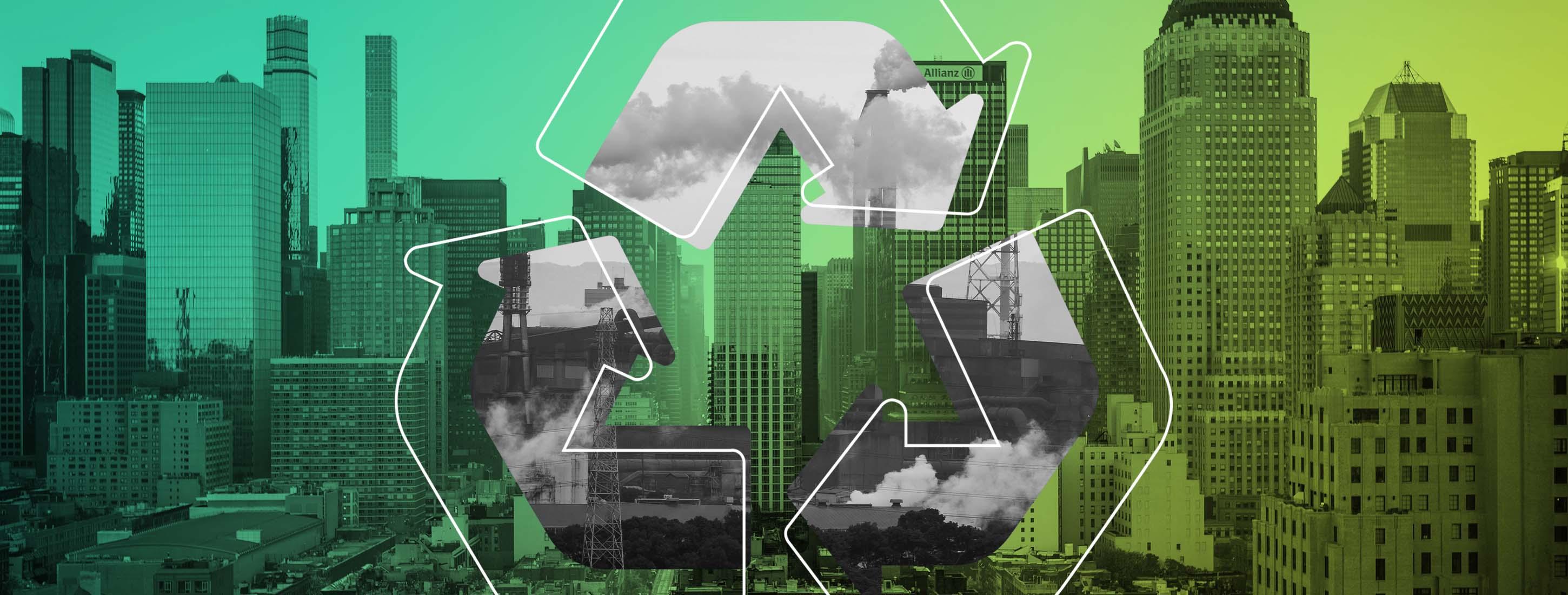Greenwashing Gotchas

Suspect your favorite brands are greenwashing? Here’s how to spot a company that is only giving lip service to their sustainability efforts.
Sustainability isn’t just an environmental imperative, it's good business. Consumer expectations regarding sustainability are rising, and some brands are falling short. As more sustainable products enter the market, consumers are opting to make purchases that align with their values. We’re talking hundreds of billions of dollars globally; he sustainable packaging market alone was valued at USD $256.9 billion in 2021. And, according to research by NYU Stern Center for Sustainable Business, products marketed as sustainable were responsible for one third of all growth in the consumer packaged goods sector, growing 2.7x faster than their non-sustainable counterparts.
Euromonitor’s 2021 “Voice of the Consumers Lifestyles” survey outlined how purpose-based organizations are winning with customers by prioritizing transparent communication and accountability. They found that “almost a third of global consumers buy from brands that are aligned with their values and over a fourth boycott those that aren’t.” And those numbers are only expected to grow as online activism continues to influence purchasing behavior.
But every few months we hear a similar story—a brand has been exposed for committing the cardinal sustainability sin: greenwashing.
What exactly is greenwashing? In most cases, it's the over exaggeration or embellishment of sustainability claims in marketing to attract well-meaning shoppers, i.e. when a brand's walk doesn’t match its talk.
As a brand, greenwashing (even well intended mistakes) can lead to bad press and serious implications for the bottom line. As a consumer, it's disheartening and confusing: I believed what I was told, and now I don’t know what’s true… I’m trying to do my part, but how can I trust what a brand is telling me?... What should I look for when I’m trying to buy sustainably?
To answer these questions, here are some greenwashing red flags that you can keep an eye out for:
🚩1.Big concepts, miniscule impact
Vague, open-ended statements chock full of sustainability buzzwords are a greenwashing warning sign. Loaded words like sustainable, natural, or green wind up on packaging and in marketing to create the feeling that a product is eco-friendly, but their broad definitions make the claims nearly impossible to measure and essentially meaningless to the actual cause. Corporate ESG reports and product packaging often talk about sustainability concepts at a high level, opting for sweeping statements with no clear plan of action or metrics to back them up. Basically, if you can’t find any specifics on how the brand or product actually benefits the environment, it’s probably greenwashing.
An IRL example:In 2019, a leading fast food company switched from plastic to paper straws to help “protect the environment.” Turns out that, though the materials were recyclable, the paper straws couldn’t be processed and actually added waste to landfills. The kicker? Their plastic predecessors were actually recyclable…
🚩2.Not wrong, but not right
Not all sustainability claims are created equal. Irrelevant environmental claims can be used to misdirect consumers with statements that are technically true but are either unimportant or based on outdated standards. For example, the Montreal Protocol outlawed the use of ozone-depleting CFCs over 30 years ago, but products are still marketed to this day as “containing no CFCs.” Is it a lie? No. Is it confusing and a little shady? Most definitely.
An IRL example: In 2021, a large household products company claimed that its recycling bags were “designed to handle all types of recyclables.” Alas, not only were the bags themselves not recyclable, but they actually contained chemicals that contaminated any waste that would have otherwise been recyclable. Sure, the bags could physically hold the recyclables, but what good does that do when all the waste put into them ends up in landfills?
🚩3. The good, the bad, and the ugly
If you’ve ever come across sustainability claims that sound too good to be true, they probably are. Companies often opt to share what they’re doing well, without acknowledging the elements of their business that are detrimental to the environment. Greenwashing isn’t illegal, but it is up to the individual organization to choose what sustainability metrics to track and disclose to the public — so keep an eye out and choose brands that share both their positive impacts and areas for improvement. The illusion of perfection is all too easy to achieve these days, but you have to remember it’s still just an illusion.
An IRL example: Major banks have recently shared the steps they’re taking towards investing in sustainable investment opportunities, but a report from the Rainforest Action Network showed that, while banks promote “green” messaging, they have provided nearly $4 trillion in financing to the fossil fuel industry. Remind me, what color are fossil fuels again?
🚩4. Fake news
As reports of greenwashing have become more ubiquitous, consumers are increasingly wary of sustainability claims. Some products even go as far as to use words and images to give the impression of a third-party certification when none exists. According to a Business of Sustainability Index report by GreenPrint, 53% of Americans never/only sometimes believe sustainability claims and 45% need a third-party source for validation. Look for brands that partner with reputable organizations who specialize in tracking, testing, and substantiating statements.
An IRL example: An alternative milk brand came under fire when they claimed that “climate experts say cutting dairy and meat products from our diets is the single biggest lifestyle change we can make to reduce our environmental impact.” The UK Advertising Standards Authority found that the claim was based on the statement of one climate scientist alone and “overstated what the evidence supported.” Why is everyone always so quick to blame the cows?
So what can you actually do as a consumer?
With so much information and so little time, it can be overwhelming to try and shop our values. If you want to avoid greenwashing, be S.M.A.R.T. Prioritize products and brands whose sustainability claims are Specific, Measurable, Attainable, Relevant, and Time-bound, and you’ll be well on your way to avoiding all these pesky red flags.
And what can brands do?
Be honest — about all of it. Consumers don’t expect perfection, but they don’t want to feel misled. As the science and information surrounding sustainability is constantly changing, it can be difficult to know how to communicate the work that is being done. Develop internal processes and external messaging that prioritize evolution, education, and experimentation. Share the good, don’t hide the not so good, and tell consumers what's being done to strive for improvement.
